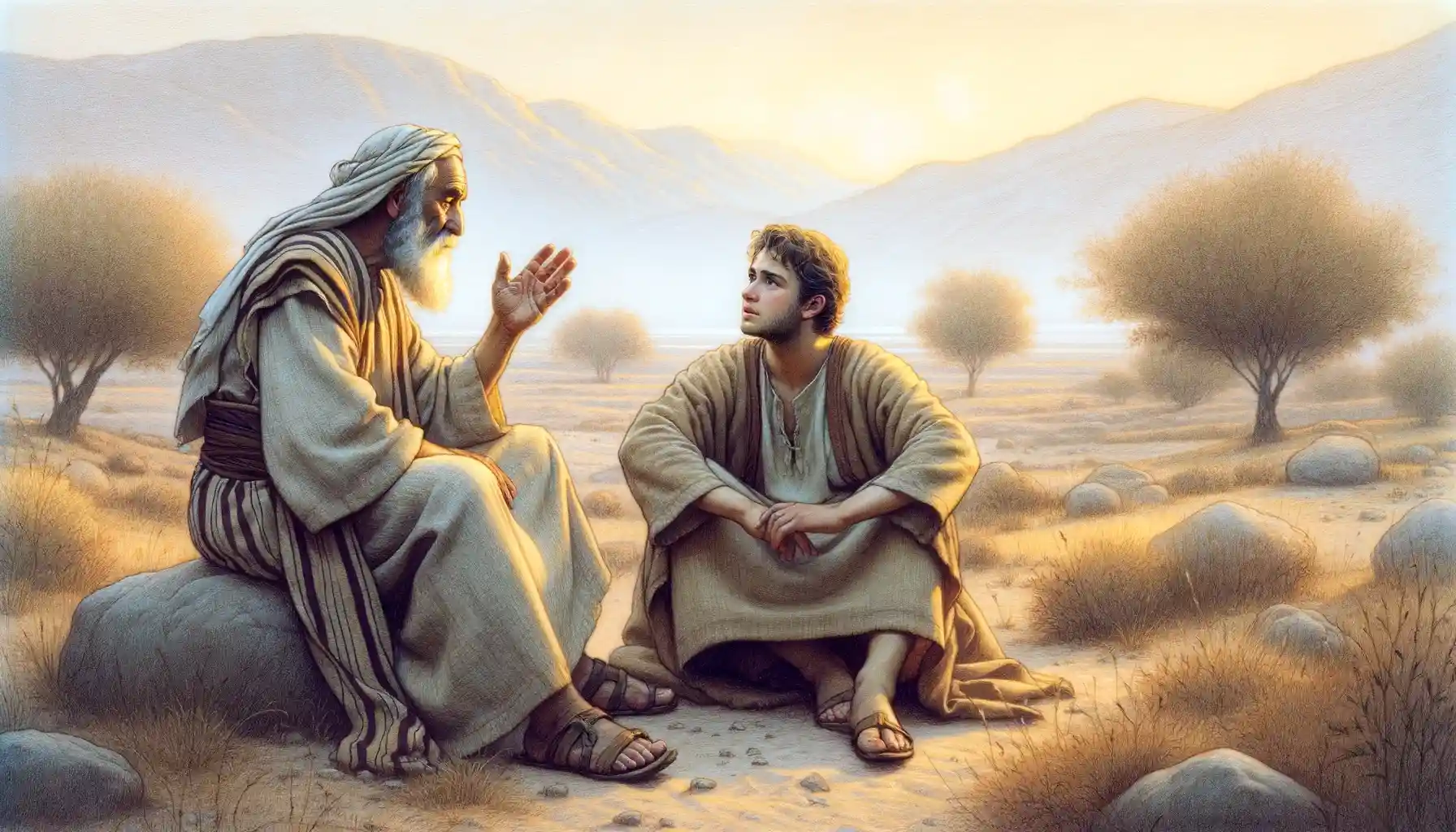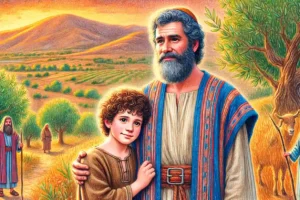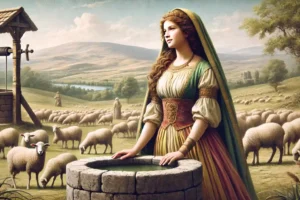
Jethro: Mentorship and Governance in the Wilderness
Jethro, also known as Reuel, is a significant figure in the book of Exodus in the Bible. He was Moses’ father-in-law and the priest of Midian, playing a pivotal role in Moses’ life and in the early stages of Israelite history.
Quick Facts:
- Relationship to Moses: Jethro was Moses’ father-in-law, father to Zipporah whom Moses married after fleeing Egypt.
- First Encounter: Moses met Jethro after fleeing from Pharaoh’s death sentence, and he helped Jethro’s daughters water their flock at a well.
- Advice to Moses: Jethro is best known for advising Moses on how to manage and delegate judicial responsibilities among the Israelites, significantly improving the governance structure.
- Religious Role: As a priest of Midian, Jethro’s role suggests he had significant religious influence and recognition in his community.
- Supportive Figure: Jethro provided refuge to Moses in Midian and later expressed approval of the Israelites’ escape from Egypt, offering sacrifices to God in celebration.
Contextual Background: Jethro, known in various traditions by different names such as Reuel or Hobab, is introduced in the Book of Exodus as the priest of Midian. He becomes Moses’ father-in-law after Moses flees Egypt to escape Pharaoh’s wrath. Jethro’s encounter with Moses at the well, where Moses helps Jethro’s daughters, sets the stage for a deep and influential relationship between the two.
Theological and Character Insights:
- Interfaith Respect and Influence: Jethro, though a Midianite priest, acknowledges the power of the God of Israel. This is significant as it highlights a mutual respect for spiritual and religious practices between differing cultures and faiths. His recognition of Yahweh’s superiority after hearing of the miracles performed during the Exodus reflects an openness to truth, regardless of its source.
- Advice on Governance: One of the most significant contributions of Jethro in the Bible is his advice on governance to Moses. Observing Moses’ unsustainable practice of personally judging every minor dispute among the Israelites, Jethro suggests appointing capable men as leaders over groups of tens, hundreds, and thousands. This not only decentralized the judicial process but also established a practical model of leadership that alleviated Moses’ burden and empowered others.
- Leadership Qualities: Jethro’s leadership is characterized by wisdom, humility, and a genuine concern for the welfare of Moses and his people. His approach to problem-solving and leadership through delegation is a model that has been admired and emulated in various leadership studies.
- Symbol of Gentile Wisdom: Jethro stands as a symbol of gentile wisdom and righteousness in the biblical narrative. His outsider status but critical role in the formation of Israelite governance serves as a reminder of the broader scope of God’s interaction with humanity beyond the Israelite community.
Legacy and Symbolism: Jethro’s legacy as a biblical figure extends beyond his immediate interactions with Moses. He symbolizes the inclusivity of divine wisdom, showing that valuable lessons and leadership can come from outside one’s immediate community or even faith. His advice led to a foundational governance structure for the Israelites, which can be seen as a precursor to modern concepts of administrative delegation and leadership.
Conclusion: Jethro’s narrative in the Bible offers profound insights into leadership, governance, and intercultural religious respect. His story underscores the importance of wise counsel and effective leadership structures, showcasing how leadership and wisdom are valued across different cultures and religious backgrounds. His influence on Moses and, by extension, on the Israelites’ journey, highlights the impact of mentorship and the importance of being open to guidance, regardless of its origin.



